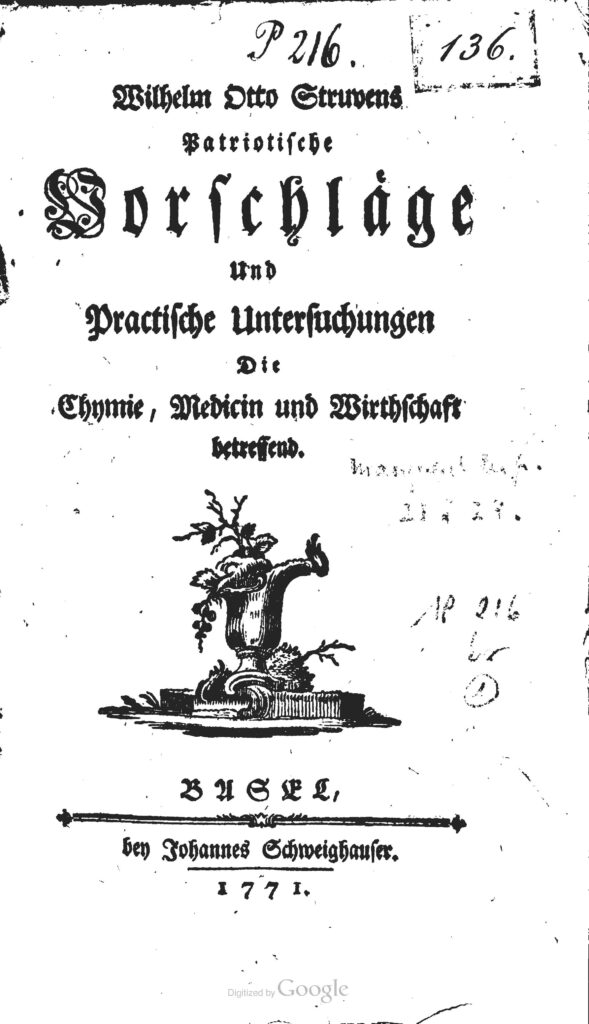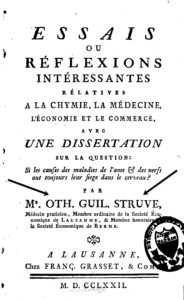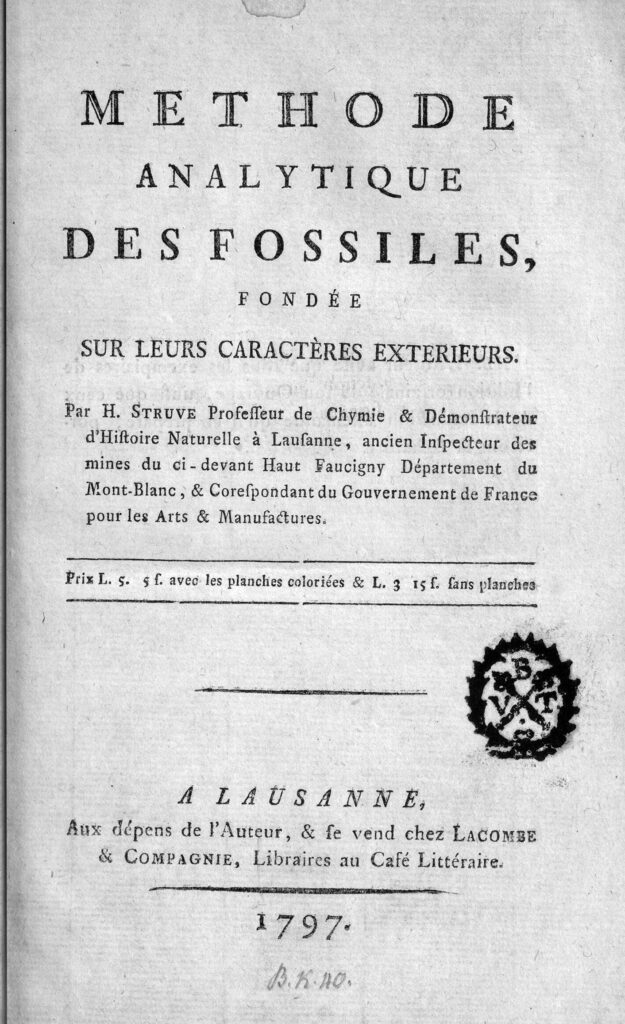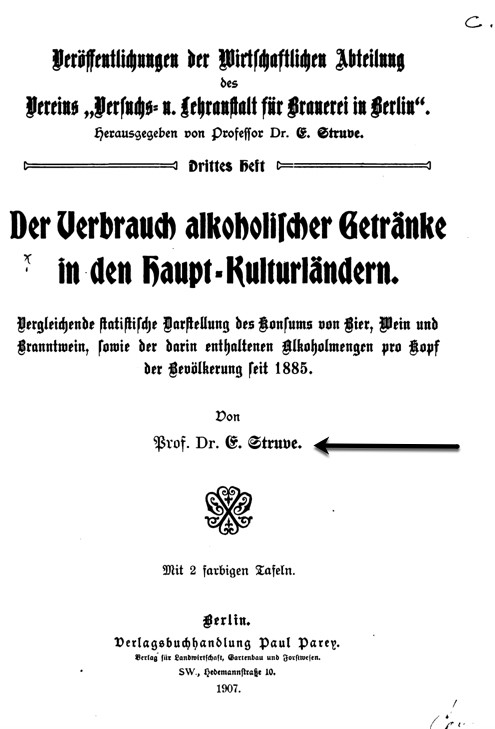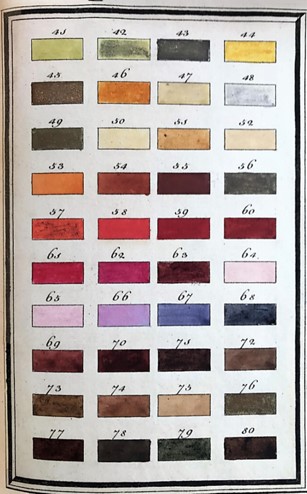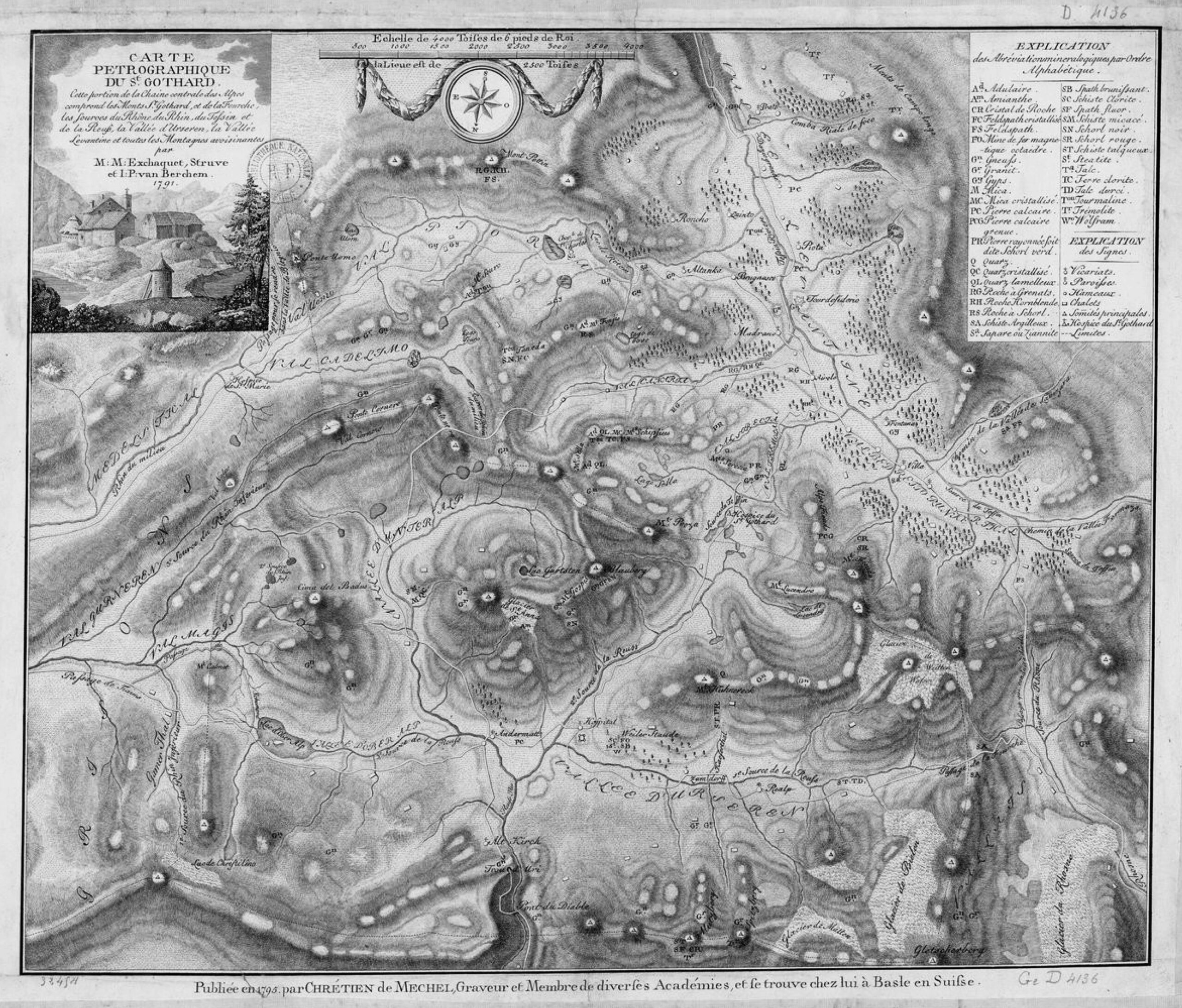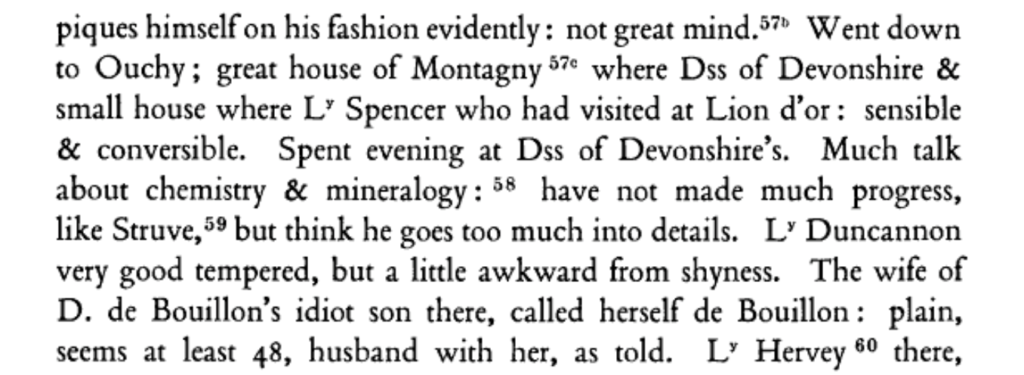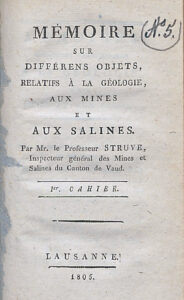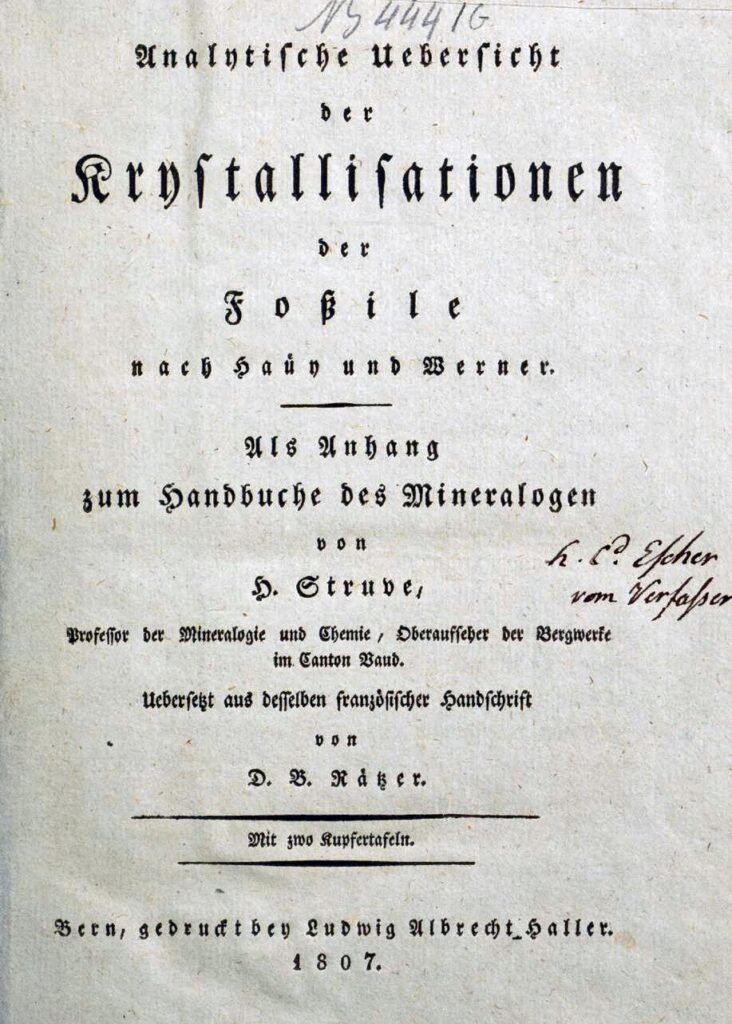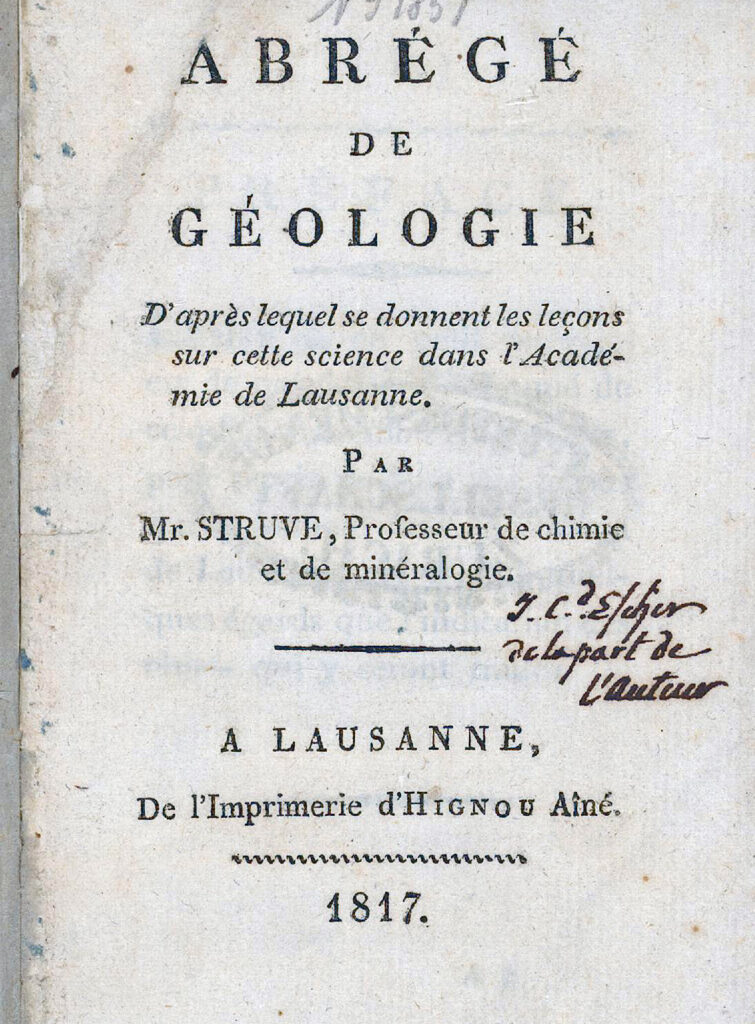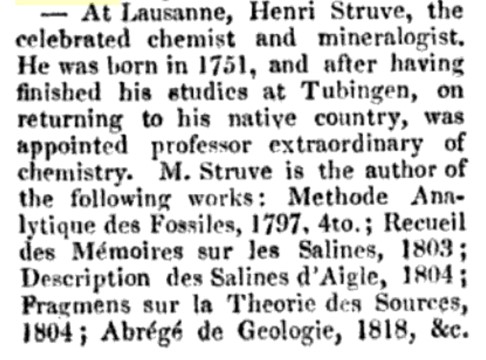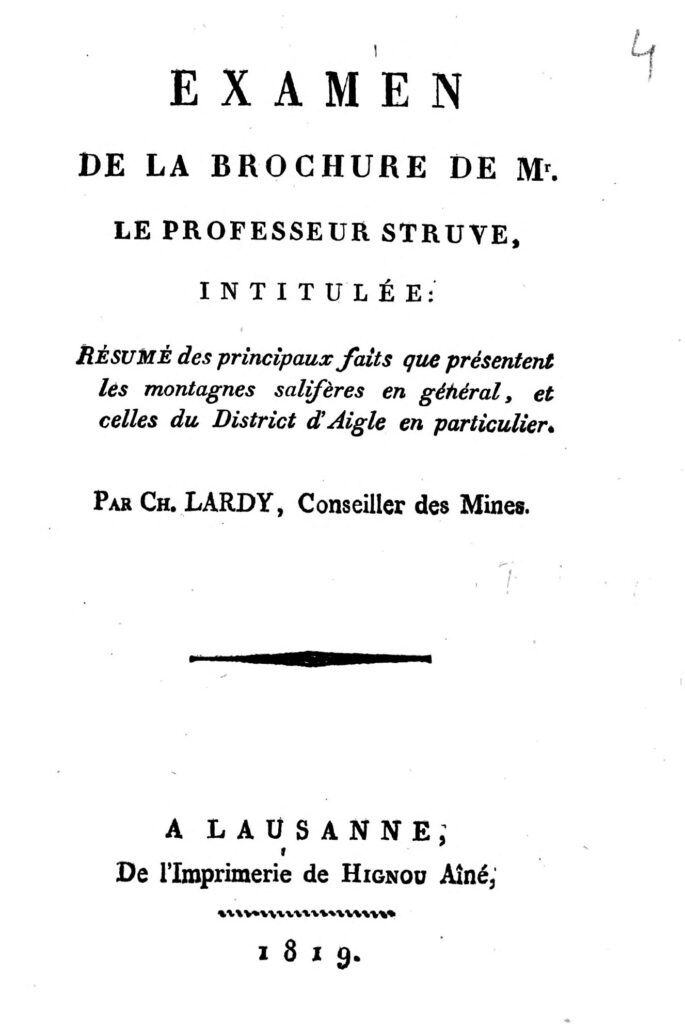Also known as Guillaume Othon Struve (1718-1791) and not to be confused with the unrelated Russian astronomer Otto Wilhelm Struve. Wilhelm Otto was the son of Friedrich Gottlieb and Johanne Dorothea (Werner) Struve.
Wilhelm Otto Struve at some point moved to Lausanne, Switzerland, where he is listed as an apothecary, although others say he was a doctor. He was the brother of the Three Loeck Sisters Nth grandmother Christina Regina Struve (1721 – 1776).
He married Judith Secrétan (1721 – 1791) and they had one son Henri Struve who was born on 6th September 1751 at Lausanne.
We know he wrote several books (see below). In 1772 he published a work entitled Essais ou Réflexions intéressantes rélatives à la chymie, la médicine, l’économie et le commerce, presents some ideas relative to chemistry, medicine, economics and commerce… Unfortunately, one of the two books that he published got his name wrong (see below).
Patriotische Vorschläge und practische Untersuchungen die Chymie, Medicin und Wirthschaft betreffend … [1771]
HENRI STRUVE (1751 – 1826)
Distinguished chemist and mineralogist, son of the above Guillaume-Othon Struve and Judith Secretan, was born in Lausanne September 6, 1751. His father, doctor of that city; seeing that his son had a decided taste for the arts, allowed him to study the subject in Tubingen and in Leiden. In 1776 he returned to his homeland (Switzerland), where he soon left the profession of doctor to engage in the culture of chemistry and of mineralogy.
He married Rose Esther Pillissier, daughter of Louis, commandant, in 1778. Children do not appear to have appeared.
Also in 1778, on behalf of the Bern government, he was sent for further training in Germany as a mineralogist.
In 1784, the Academy of Lausanne (pre-cursor to the University) entrusted Henri Struve with the teaching of chemistry and granted him the title of honorary professor but he was not given voting rights. In 1799, he was appointed full professor and he taught chemistry, natural sciences, and mineralogy until 1819. In 1801 he was also made responsible for teaching Physics. Starting in 1805, he was also appointed director of the salt mines in Bex, a small town in the Rhone valley, 60 km from Lausanne and general inspector of the Vaudois mines and salt works.
Struve was made an honorary associate of the Economic Society of Bern from 1775, as well as the Société des arts de Genève from 1790. He was a founding member of the Natural Research Society of Switzerland in 1815. After a long and painful illness, Struve died on November 29, 1826.
His collection of rocks ended up in the Musée Cantonal de Géologie in Lausanne. His native tongue was German yet he wrote in French, a combination that some noted:
I also dare to add to my suggestion Struve’s treatise on the salt works of Aelen, with the request that you accept it with the utmost kindness, and judge it as a German work in an extraordinarily bad French style. The content of this pamphlet is so important though that its writer deserves to be forgiven for having written so badly.
Below, mention of Henri Struve in The Diary of Sir Charles Blagden. Notes and Records of the Royal Society of London, Vol. 8, No. 1 (Oct., 1950), pp. 65-89.
The death notice for Hneri Struve in The Annual Registrar:
There is an interesting pamphlet that refutes some of Struve’s observations written by Lardy titled: Examen de la brochure de M. le professeur Struve, intitulée …
